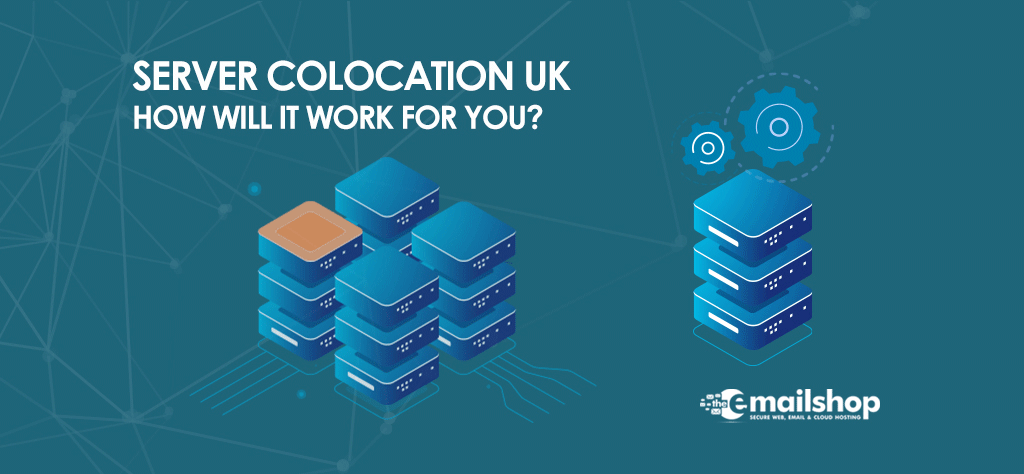Utilizing the customer’s current server equipment and a provider’s high-speed, round-the-clock internet services, exceptional operational security, increased availability, and long-term stability, colocation hosting is a less costly server hosting technique. Colocation hosting and server colocation often improve business processes, reduce capital costs, and improve customer service. When a customer employs server colocation, their existing server infrastructure is moved from their on-premise deployment to the data center of the colocation provider.
Why server colocation and colocation hosting?
From an organizational standpoint, the following are the key benefits of server colocation and colocation hosting:
Access to a colocation provider’s multi-million dollar network; Offloading of prohibitively costly network infrastructure administration expenses to specialized hosting professionals; Making use of the power contracts with the server colocation provider to considerably lower energy prices. Colocation reduces IT budget overhead by using servers that have already been acquired, allowing companies to focus only on managing their operations and improving their products.
How do colocation servers operate?
Your business purchases its own server hardware and software when using colocation services. The hosting company takes care of the network, power, and housing requirements for maintaining the exacting settings that contemporary servers need. The physical server is not really touched by colocation providers unless clients buy direct management, often known as “remote hands.”
You are in charge of handling the technical parts of your server and setting it up and configuring it to fit the requirements of your firm, such as replacing an old server. Server colocation users need to have a solid understanding of what they’ll do with their servers, how they’ll do it, and what hardware and software add-ons they’ll need to achieve their hosting goals. Because of this, the majority of colocation clients have transferred their existing IT infrastructure from their on-premise environment to the colocation provider’s data center.
Since the company’s servers must be accessed remotely, a console is used to manage and access them. Colocation offers geographic independence, but with the guarantee that in the case of an emergency, a skilled team will be on the scene to deal with any physical issues at the data center. The biggest benefits include using the power contracts and bandwidth capacity of a data center. In an emergency, remote hands may be employed on an hourly basis.
If your server requires a lot of bandwidth and maximum uptime and your company is capable of handling the installation, maintenance, and software monitoring internally, colocation offers significant cost savings and risk reduction compared to having your server on-site. The client must possess their own physical server in order to set up a colocation hosting agreement. The consumer just leases space from the hosting provider as much as they would at a rental storage facility, rather than renting a server from them. The client moves the server physically to the colocation hosting provider’s office, which is often a data center. The client retains ownership and control of all hardware and software configurations for that server, but just leases space inside the data center or colocation facility. The client may rapidly increase or downgrade capabilities like bandwidth and rack space to suit the demands of the company by talking with the colocation hosting provider’s staff.
Hosting colocation servers for security
The security that colocation hosting offers is one of the main reasons why most businesses choose it. Many former colocation users have switched to cloud technology because of its simplicity, limitless resources, and affordable prices. This notes that there are some things a cloud cannot do. Specifically, it refers to the degree of control you have over your server as opposed to the cloud.
What Do Data Centers Mean by Colocation?
Customers seeking colocation services to support their servers and storage use colocation data centers. Network providers, cloud providers, and businesses are a few of these services. Colocation services further include networking, backup cooling and power systems, physical security, and the building where everything is stored. Customers will be able to consolidate their everyday IT operations and save money on capital expenditures by adopting these services.
Features of Colocation Data Centers
- Power: redundancy-varying backup generators, battery backup systems, or uninterruptible power sources are all provided.
- Cooling: In order to protect the hardware from overheating problems, cooling solutions, such as HVAC systems, are offered.
- Security: Many protections are offered to maintain strict security standards. These specifications could include security perimeters, round-the-clock monitoring, on-site security officers, and biometric authorisation.
- Scalability: The colocation facilities can be expanded to accommodate future corporate expansion. You may expand your facility by installing additional servers or equipment, enter a new market, or join the cloud.
- Reliability: Services are always accessible, guaranteeing that you and your clients can always access your data.
- Interconnection: To meet the needs of next-generation computing, networks, clouds, and IT service providers are integrated. By interconnecting your network, apps, and data, you can integrate and securely grow your organization.
Advantages of Colocation Servers
Companies may utilize a colocation data center for their servers and computer devices instead of maintaining a data center. Businesses could benefit from the following by employing colocation services:
- Reducing the cost of bandwidth and electricity
- A high-speed network connection that is available 24 hours a day, seven days a week.
- Physical data center security measures
- Compliance badges and certificates
- Stability, adaptability, and scalability on an ongoing basis
- Technical assistance
What is the cost of colocation?
- The cost of colocation is determined by:
- The amount of space occupied by the server(s) in the data center.
- The required network connection level
- The method by which the cluster receives power
- The amount of on-site assistance required (pay-per-use)
Your business pays for the actual space used by your server when hosting is colocated. Server colocation provides a practical and cheap alternative for a business with significant demands but no resources to develop in their own premium server confinement environment.
Contact one of our network architects or our knowledgeable sales team to get a quote for your particular colocation needs. We most likely have a configuration that was created for a business like yours.
GigeNET provides a broad choice of versatile and adaptable colocation alternatives that may help your business advance significantly for less money than you would have anticipated. Our services are supported by an industry-leading service level agreement and start at only $135 per month.
For Discount and Offers, Visit our Official Twitter Page









